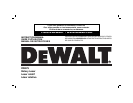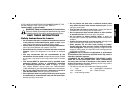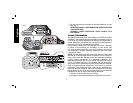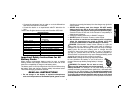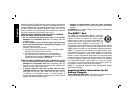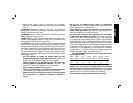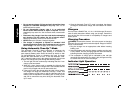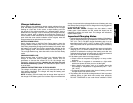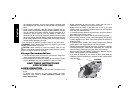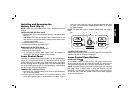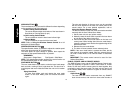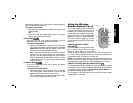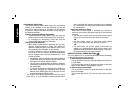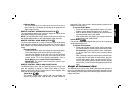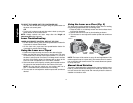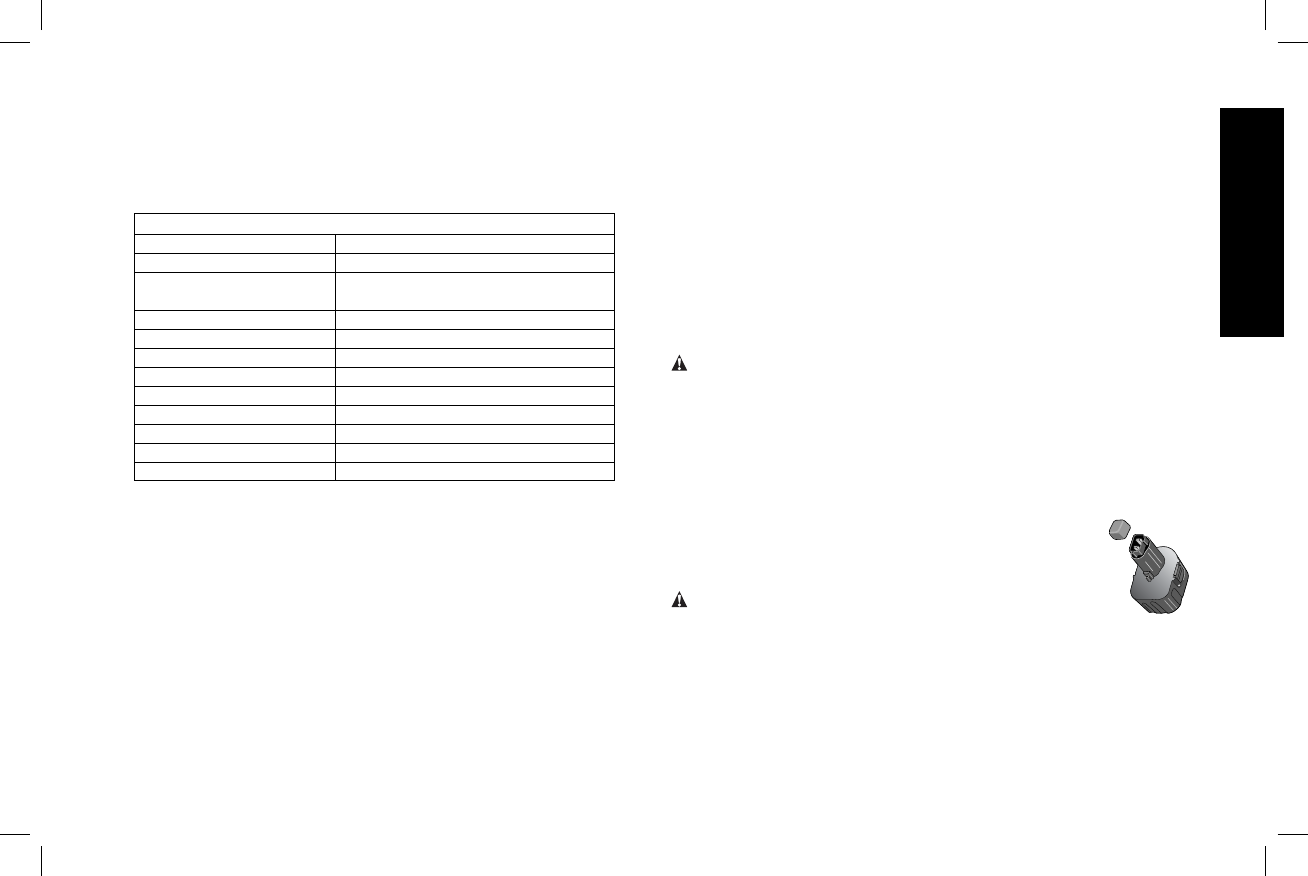
English
3
• Connect the equipment into an outlet on a circuit differentfrom
that which the receiver is connected.
• Consult the dealer or an experienced radio/TV technician for
help.
These Class B digital devices comply with Canadian ICES-003.
SPECIFICATIONS
Light Source Semiconductor laser diode
Laser Wavelength 630 – 680 nm Visible
Laser Power <5mw, CLASS IIIa LASER
PRODUCT
Rotation Speed 0 – 600 rpm
Self-Leveling Range ± 5°
Indoor Visible Range 200' (61 m) diameter
Range with Detector 1500' (450 m) diameter
Level Accuracy ± 1/8" per 100' (± 3 mm per 31 m)
Power Source 9.6V–18V D
EWALT batteries
Operating Temperature 23°F to 122°F (-5°C to 50°C)
Storage Temperature -4°F to 158°F (-20°C to 70°C)
Environmental Water resistant
Important Safety Instructions for All
Battery Packs
When ordering replacement battery packs, be sure to include
catalog number and voltage. Consult the chart at the end of this
manual for compatibility of chargers and battery packs.
The battery pack is not fully charged out of the carton. Before using
the battery pack and charger, read the safety instructions below.
Then follow charging procedures outlined.
READ ALL INSTRUCTIONS
• Do not charge or use battery in explosive atmospheres,
such as in the presence of flammable liquids, gases or dust.
Inserting or removing the battery from the charger may ignite the
dust or fumes.
• NEVER force battery pack into charger. DO NOT modify
battery pack in any way to fit into a non-compatible charger
as battery pack may rupture causing serious personal injury.
Consult the chart at the end of this manual for compatibility of
batteries and chargers.
• Charge the battery packs only in D
EWALT chargers.
• DO NOT splash or immerse in water or other liquids.
• Do not store or use the tool and battery pack in locations
where the temperature may reach or exceed 105°F (40˚)
(such as outside sheds or metal buildings in summer).
DANGER: Electrocution hazard. Never attempt to open the
battery pack for any reason. If battery pack case is cracked or
damaged, do not insert into charger. Do not crush, drop or damage
battery pack. Do not use a battery pack or charger that has
received a sharp blow, been dropped, run over or damaged in
any way (i.e., pierced with a nail, hit with a hammer, stepped on).
Electric shock or electrocution may result. Damaged battery packs
should be returned to service center for recycling.
NOTE: Battery storage and carrying caps are provided
for use whenever the battery is out of the tool or
charger. Remove cap before placing battery in charger
or tool.
WARNING: Fire hazard. Do not store or carry
battery so that metal objects can contact exposed
battery terminals. For example, do not place battery in aprons,
pockets, tool boxes, product kit boxes, drawers, etc., with loose nails,
screws, keys, etc. without battery cap. Transporting batteries can
possibly cause fires if the battery terminals inadvertently come
in contact with conductive materials such as keys, coins, hand
tools and the like. The US Department of Transportation Hazardous



